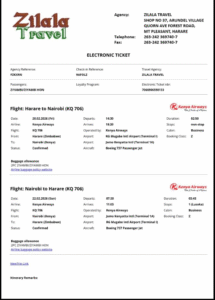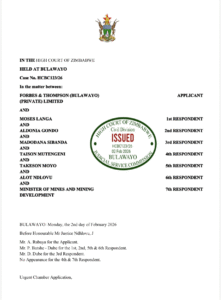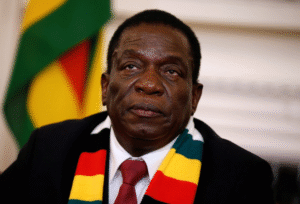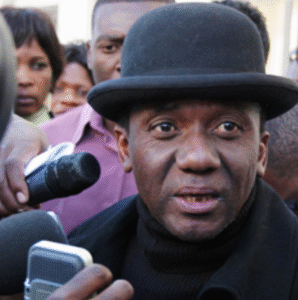MNANGAGWA MOVES TO EXTEND HIS RULE

President Emmerson Mnangagwa is making moves to stay in power beyond the constitutional limit of his second term. Justice Minister Ziyambi Ziyambi has confirmed the start of the legal process to make this possible. This plan contradicts Mnangagwa’s earlier public statements where he claimed to respect the constitution. Mnangagwa came into power in 2017 through a coup and is now planning to extend his rule beyond 2028, possibly until 2030 or longer.
At a Zanu PF conference in Bulawayo last October, it was decided that Mnangagwa could extend his time as President if he wanted. However, the resolution admitted that it would be a difficult process. Ziyambi Ziyambi spoke about this in an interview with The Sunday Mail, a state-controlled newspaper.
Ziyambi explained that the decisions made at the Zanu PF conference are not personal but are based on the collective wishes of the people. He said the resolutions come from the grassroots, starting at district and provincial levels, and then moving up to the national conference. These resolutions become a guide for government policies and actions.
Once resolutions are agreed upon, ministries are tasked with implementing them. If any resolution requires a change in the law, the relevant ministry starts the process to make those legal changes. Ziyambi said this includes drafting and passing new laws where necessary.
For Mnangagwa to stay in power, a constitutional amendment is required. Ziyambi explained the steps involved in this process. The principles of the amendment must first be approved by the Cabinet. After that, the Attorney-General’s department drafts the law. Nationwide consultations are carried out to gather opinions from the public. Then, the draft law is reviewed by the Cabinet Committee on Legislation before it is approved by the full Cabinet. Finally, the draft law is sent to Parliament for gazetting.
In this case, the amendment will also require two referenda, meaning Zimbabweans will have to vote on whether or not they agree to the changes. Ziyambi said it is too early to explain the exact process for this specific amendment, but he stressed that the process would reflect the will of the people.
Ziyambi added that the people at the grassroots level are the ones who push for issues to be addressed. These issues are then discussed at different levels of the party structure before becoming official resolutions. He said this process ensures that government policies and actions are based on the desires of the people.
Despite the claims that these decisions come from the grassroots, critics have questioned whether ordinary Zimbabweans truly support extending Mnangagwa’s time in office. Many believe the decision is being driven by political elites within Zanu PF to secure their positions and maintain control.
The proposed extension of Mnangagwa’s rule has already raised concerns. Many Zimbabweans are struggling with economic hardships and feel the government should focus on addressing their problems instead of changing the constitution to keep one person in power. Others see this move as a threat to democracy in the country.
If successful, Mnangagwa’s extension could set a precedent for future leaders to stay in power beyond constitutional limits. This has been a common trend in several African countries, where leaders amend constitutions to remain in office indefinitely.
The process to extend Mnangagwa’s rule is still in its early stages. Ziyambi’s statements show that the government is serious about moving forward with the constitutional amendment. However, the challenges ahead, including the need for public approval through referenda, could complicate the process. It remains to be seen whether this will truly reflect the will of the people or if it will be pushed through by those in power.
For now, Mnangagwa’s plans to extend his rule have sparked debate in Zimbabwe, with many questioning what this means for the country’s future.





